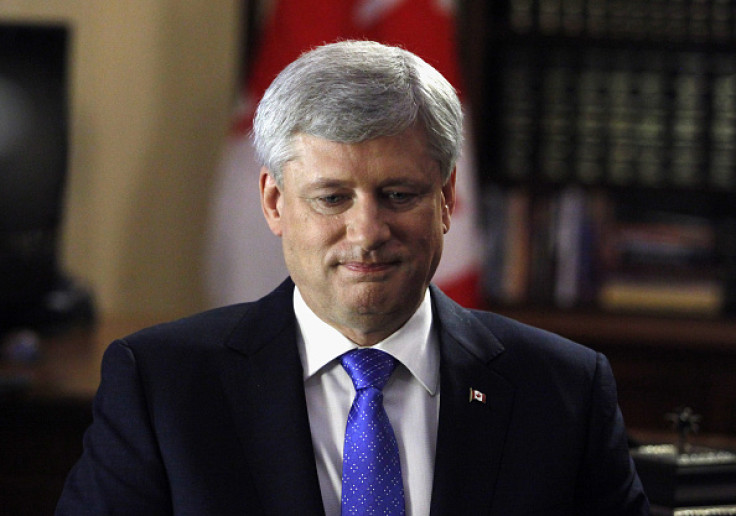Canada: PM Stephen Harper to ban Muslim niqab for public servants if he wins re-election

Canadian Prime Minister Stephen Harper has pledged to work on banning the Muslim niqab for public servants if he wins re-election. Harper has pushed the niqab agenda at the centre stage of his campaign as the 19 October federal elections draw closer.
Citing Quebec's Bill 62, which prevents civil servants from wearing the niqab, Harper said that conservatives will possibly push for federal legislation if his party wins elections. "That's a matter we are going to examine," said Harper. "Quebec, as you know, has legislation on this and we are looking at that legislation."
According to a survey conducted by University of Toronto professor and columnist Peter Loewen, the general public consensus draws in the favour of banning the niqab. "Between 60 and 65 percent of people we polled agree with the bans, and this is consistent across all partisan groups and even among immigrants living in Canada," Loewen told France24 News.
Meanwhile, critics have condemned Harper for trying to create a divide within the Canadian community and using the niqab as a political ploy. "He's playing the politics of fear and division, and pitting Canadians against one another. It's irresponsible and dangerous and not worthy of the office of a prime minister," said opposition Liberal leader Justin Trudeau on 7 October.
Loewen too has agreed that the niqab issue is helping Harper "distract" the public from other issues. "It's a political issue that is obviously working well for the prime minister," he said.
"What it does is suck the oxygen out of the campaign and allow [Harper] to set the media agenda. He has put the other candidates in a difficult spot, and is taking time away from other issues," Loewen said.
Earlier, Canadian MP Larry Miller apologized after his statement saying Muslim women who do not want to remove their face-coverings when taking the citizenship oath should, "stay the hell where [they] come from."
Miller's comments came when the case of Zunera Ishaq, a woman fighting in court to wear her niqab at the citizenship ceremony, was being discussed on a local call-in radio show. "Frankly if you're not willing to show your face in a ceremony that you're joining the best country in the world ... if you don't like that or don't want to do that, stay the hell where you came from," said Miller. "That's maybe saying it a little harshly, but that's the way I feel."
Following the rant, Miller issued a written apology saying: "Yesterday I made comments on a radio show that I recognize were inappropriate."I stand by my view that anyone being sworn in as a new citizen of our country must uncover their face. However, I apologize for and retract my comments that went beyond this."
© Copyright IBTimes 2024. All rights reserved.






